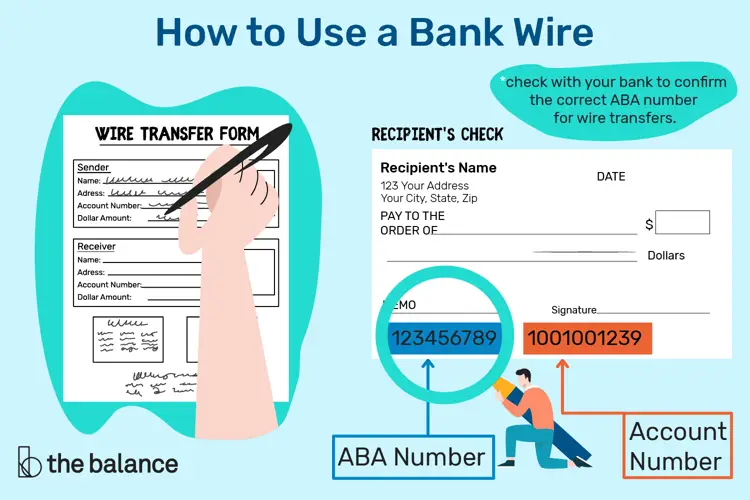The Future of Money Transfers Fast, Secure, and Convenient Electronic Remittance

Introduction: In today’s fast-paced world, traditional methods of transferring money are being revolutionized by advancements in technology. One such innovation is electronic remittance, which enables individuals to send money quickly, securely, and conveniently from one location to another. This article delves into the realm of electronic money transfers, exploring its various facets, advantages, and the future it holds.
Electronic Money Transfers
Electronic money transfers refer to the process of sending funds from one individual or organization to another through electronic means, such as computers, smartphones, or the internet. Instead of relying on physical currency or paper checks, electronic transfers leverage digital platforms to facilitate seamless transactions. This method has gained significant popularity due to its speed, security, and convenience.
Secure Electronic Fund Transfers
Security is a major concern when it comes to financial transactions, and electronic fund transfers provide robust measures to ensure the safety of your money. Advanced encryption techniques, multi-factor authentication, and secure socket layers (SSL) are employed to safeguard sensitive information during the transfer process. Additionally, reputable electronic money transfer services comply with stringent regulatory standards, further enhancing the security of your transactions.
For example, renowned online payment platforms utilize end-to-end encryption protocols, protecting your personal and financial data from unauthorized access. This ensures that your funds reach the intended recipient without compromising your privacy or exposing you to potential fraud.
Fast and Convenient Money Transfers
Gone are the days of waiting for days or even weeks for your money to reach its destination. Electronic remittance offers unparalleled speed, allowing funds to be transferred within minutes or even seconds. Unlike traditional banking methods, which may involve manual processing and intermediaries, electronic transfers operate on automated systems that expedite the process.
Consider a scenario where you need to send money to a loved one in another country urgently. With electronic money transfer services, you can initiate the transaction from the comfort of your home or office, eliminating the need to visit a bank or post office. Through a few simple clicks, your funds can be swiftly transferred, ensuring that your recipient receives them promptly.
Online Money Transfer Services
Online money transfer services have emerged as convenient alternatives to traditional methods. These platforms facilitate seamless transactions between individuals and businesses across different geographical locations. They offer user-friendly interfaces, making it easy for users to initiate transfers, track payments, and manage their finances efficiently.
One popular online money transfer service is PayPal, which enables users to send and receive money electronically with just an email address. Users can link their bank accounts or credit cards to their PayPal accounts, allowing for quick and hassle-free transfers. With services like PayPal, the entire process of sending money becomes as simple as a few clicks, providing a user experience tailored for convenience.
Digital Payment Solutions
Digital payment solutions encompass a broad array of technologies and services that enable electronic fund transfers. Beyond individual platforms like PayPal, digital wallets have become increasingly prevalent. These mobile applications allow users to store payment information securely and make transactions using their smartphones.
For instance, services such as Apple Pay or Google Pay leverage near-field communication (NFC) technology, enabling users to make contactless payments by simply tapping their phones on compatible payment terminals. The integration of digital payment solutions in various industries, including retail, food delivery, and transportation, has revolutionized the way people conduct transactions.
Efficient Electronic Remittance
Digital remittance services have transformed the landscape of international money transfers. Previously, transferring money across borders involved complex processes, high fees, and lengthy waiting times. However, electronic remittance services provide a cost-effective and efficient solution.
Companies like TransferWise leverage peer-to-peer networks to bypass traditional banking systems, reducing costs and providing competitive exchange rates. With these services, individuals can send money internationally at a fraction of the cost and time it would take through conventional methods. The transparent fee structures and real-time exchange rates offered by digital remittance platforms have made them increasingly popular among individuals and businesses alike.
Instant Money Transfers
The rise of mobile banking applications has revolutionized the way we transfer money. Many banks now offer instant peer-to-peer payment services that allow customers to send money quickly using their smartphones. These services leverage the convenience of mobile technology, enabling users to make instant transfers to friends, family, or even merchants.
For example, applications like Venmo or Zelle enable users to link their bank accounts and send money to other users with minimal effort. Whether you split a dinner bill, pay rent, or reimburse a friend, instant money transfer services save time and eliminate the need for physical cash or checks.
Secure Online Money Transfers
One of the primary concerns when conducting financial transactions online is ensuring the security of the process. Reputable online money transfer services employ various security measures to protect user data and prevent unauthorized access.
Notably, two-factor authentication (2FA) adds an extra layer of security by requiring users to verify their identitythrough a second form of authentication, such as a unique code sent to their mobile device. This ensures that even if someone obtains your account credentials, they would still need access to your physical device to complete the transaction.
Moreover, many online money transfer services use advanced fraud detection systems that analyze transaction patterns and flag any suspicious activities. These systems help in identifying and preventing fraudulent transactions, providing users with peace of mind when transferring funds electronically.
Quick and Reliable Electronic Transfers
Electronic transfers offer unparalleled speed and reliability compared to traditional methods. When sending money electronically, you eliminate the delays associated with physical transportation or manual processing. Moreover, the automated nature of electronic transfer systems minimizes the risk of human errors that may occur during manual transactions.
For instance, consider a scenario where you need to send money to a business partner on the other side of the world to secure a deal. By utilizing electronic transfer services, you can ensure that the funds are delivered promptly, eliminating potential delays that could hinder the progress of the agreement.
Furthermore, electronic transfers provide a reliable record-keeping system. Each transaction leaves a digital trail that can be easily accessed and referenced whenever needed. This feature proves invaluable for individuals and businesses alike when it comes to keeping track of financial transactions, especially for accounting and reconciliation purposes.
Conclusion: The future of money transfers lies in the realm of electronic remittance. With its speed, security, and convenience, electronic money transfers have transformed the way we send and receive funds. From online money transfer services to digital payment solutions and efficient electronic remittance platforms, the options available today make it easier than ever to conduct seamless transactions across borders. As technology continues to advance, we can expect further innovations in the field of electronic money transfers, simplifying and enhancing financial transactions for individuals and businesses worldwide.
Conclusion: The future of money transfers lies in the realm of electronic remittance. Electronic transfer services offer prompt delivery of funds, eliminating potential delays and facilitating global business transactions. Moreover, these services provide a reliable recordkeeping system, with each transaction leaving a digital trail for easy access and reference. With their speed, security, and convenience, electronic money transfers have transformed the way we send and receive funds. As technology advances further, we can expect even more innovations in electronic remittance, simplifying and enhancing financial transactions worldwide.
